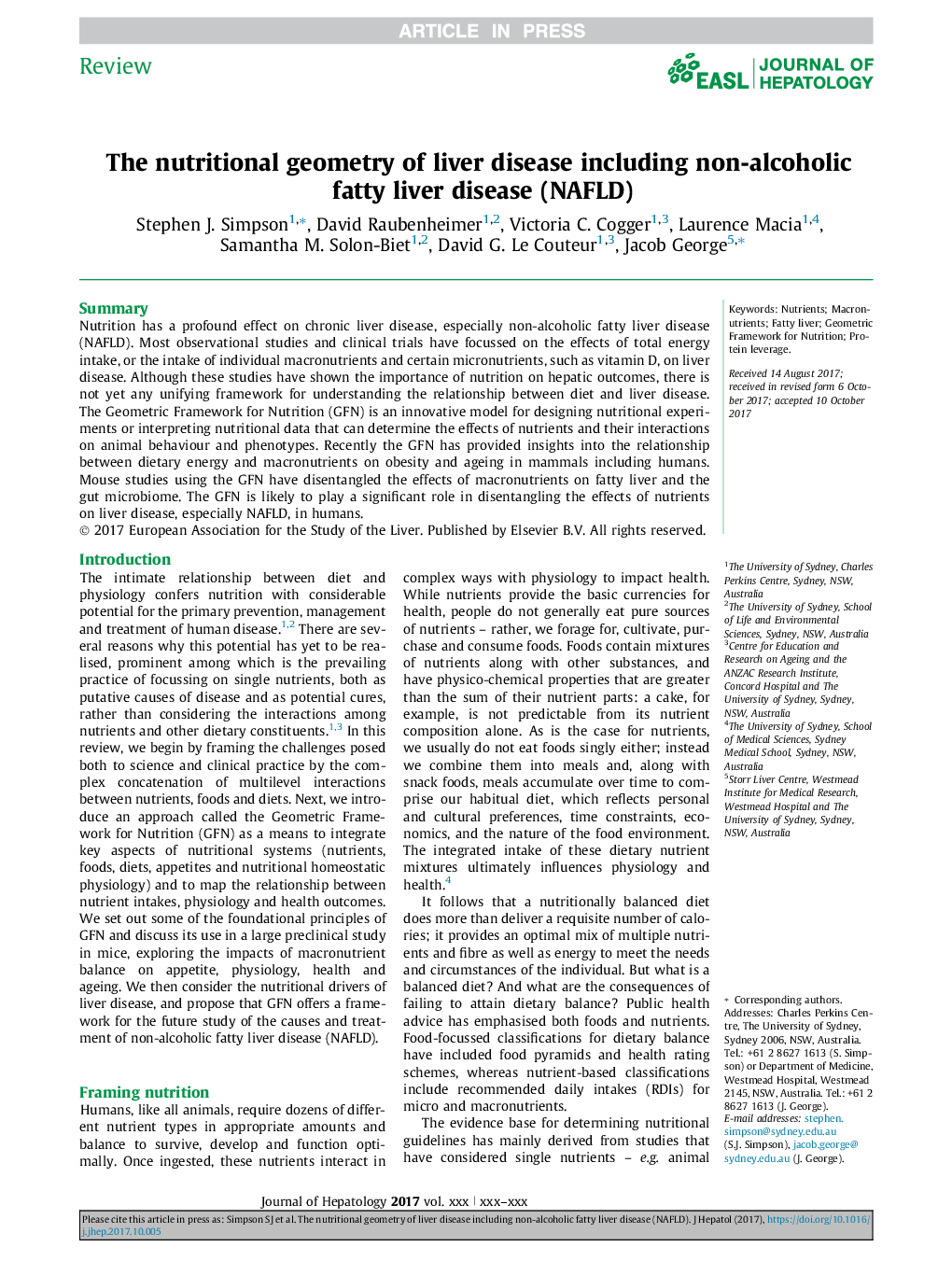| Article ID | Journal | Published Year | Pages | File Type |
|---|---|---|---|---|
| 8729355 | Journal of Hepatology | 2018 | 10 Pages |
Abstract
Nutrition has a profound effect on chronic liver disease, especially non-alcoholic fatty liver disease (NAFLD). Most observational studies and clinical trials have focussed on the effects of total energy intake, or the intake of individual macronutrients and certain micronutrients, such as vitamin D, on liver disease. Although these studies have shown the importance of nutrition on hepatic outcomes, there is not yet any unifying framework for understanding the relationship between diet and liver disease. The Geometric Framework for Nutrition (GFN) is an innovative model for designing nutritional experiments or interpreting nutritional data that can determine the effects of nutrients and their interactions on animal behaviour and phenotypes. Recently the GFN has provided insights into the relationship between dietary energy and macronutrients on obesity and ageing in mammals including humans. Mouse studies using the GFN have disentangled the effects of macronutrients on fatty liver and the gut microbiome. The GFN is likely to play a significant role in disentangling the effects of nutrients on liver disease, especially NAFLD, in humans.
Keywords
Related Topics
Health Sciences
Medicine and Dentistry
Gastroenterology
Authors
Stephen J. Simpson, David Raubenheimer, Victoria C. Cogger, Laurence Macia, Samantha M. Solon-Biet, David G. Le Couteur, Jacob George,
